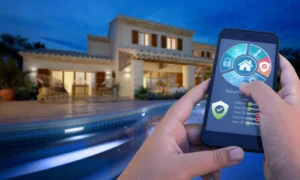Solar water heaters have become an increasingly popular choice for homeowners and businesses looking to reduce energy costs while contributing to environmental sustainability. In places like solar water heater in Dubai, where the sun shines almost year-round, these systems can provide a reliable and cost-effective solution for heating water. In this article, we will explore the benefits of solar water heaters, the different types available, and how to install and maintain them effectively.
What Is a Solar Water Heater?
A solar water heater is a system that uses energy from the sun to heat water for residential or commercial use. The basic setup consists of solar panels, typically installed on the roof, that capture sunlight and convert it into heat. This heat is transferred to a water tank, which stores the heated water for later use. With advancements in technology, solar water heaters have become more efficient and affordable, making them an excellent alternative to traditional electric or gas-powered water heaters.
Benefits of Solar Water Heaters
- Energy Savings: The most significant benefit of installing a solar water heater is the reduction in energy bills. Since solar water heaters rely on the sun, a free and abundant resource, they can dramatically lower the need for electricity or gas to heat water, which reduces utility costs over time.
- Environmental Impact: Solar water heaters help reduce your carbon footprint by decreasing reliance on fossil fuels. This is especially important in regions with high energy consumption, like solar water heater in Dubai, where the benefits of solar energy can be maximized.
- Long-Term Investment: While the initial cost of purchasing and installing a solar water heater can be high, the system’s durability and low operating costs make it a worthwhile long-term investment. Most solar water heaters come with warranties ranging from 5 to 10 years, and they can last up to 20 years with proper maintenance.
- Low Maintenance: Solar water heaters have few moving parts, which means there is less wear and tear, leading to lower maintenance costs. Regular cleaning of the panels and occasional checks of the system are usually all that is required.
- Energy Independence: By relying on solar energy, homeowners and businesses can reduce their dependence on the grid, especially in areas where power outages are frequent. This independence is particularly valuable in places with high energy prices or unreliable electricity supply.
Types of Solar Water Heaters
There are several types of solar water heaters available on the market, each with its unique features and benefits. The choice of system depends on factors like climate, available space, and the hot water needs of the household or business.
1. Active Solar Water Heaters (Direct Circulation Systems)
Active systems use pumps to circulate water through the solar panels and heat it. These systems are typically more efficient and are ideal for areas with colder temperatures, as they ensure consistent water heating.
2. Passive Solar Water Heaters (Thermosiphon Systems)
Passive systems do not rely on pumps. Instead, they use the natural rise of hot water to circulate it through the system. These systems are more cost-effective but are usually best suited for regions with a warmer climate, like solar water heater in Dubai.
3. Flat Plate Solar Collectors
Flat plate collectors are the most common type of solar collector used in water heating systems. They are large, flat panels that capture sunlight and convert it into heat. These systems are highly efficient in sunny climates and are usually installed on the roof.
4. Evacuated Tube Collectors
Evacuated tube collectors consist of rows of glass tubes that trap sunlight and convert it into heat. These systems are highly efficient and perform better in colder temperatures compared to flat plate collectors, making them ideal for a wider range of climates.
5. Integrated Solar Water Heating Systems
These systems are compact and integrate the solar collector and water storage tank into a single unit. They are easy to install and are typically used for small homes or apartments.
Installation of a Solar Water Heater
Installing a solar water heater is a relatively straightforward process, but it requires proper planning and professional expertise. Here’s an overview of the installation process:
- Assess Your Home or Business: The first step in installation is to evaluate your energy needs and the amount of sunlight your location receives. This helps determine the size of the solar water heater you need. A professional installer can also evaluate the condition of your roof and ensure it’s suitable for mounting the panels.
- Choose the Right System: Based on your energy requirements and climate, choose between an active or passive system and the type of solar collector. Keep in mind that the amount of space available for installation may influence the system you select.
- Roof Mounting and Panel Installation: Solar panels are typically installed on the roof, facing the sun. The panels should be positioned at an angle to maximize their exposure to sunlight throughout the day.
- System Hookup: After the panels are installed, the solar heating system is connected to the water storage tank. A professional will ensure that the system is properly sealed and connected to prevent leaks.
- Final Inspection and Testing: Once the installation is complete, the system will undergo a thorough inspection and testing to ensure it is functioning correctly. This includes checking the solar collector, pump (for active systems), and water storage tank.
Maintaining Your Solar Water Heater
Proper maintenance ensures the longevity and efficiency of your solar water heater. Here are some simple tips:
- Clean the Panels: Dust and dirt can reduce the efficiency of the panels, so it’s essential to clean them regularly. Use a soft cloth and water to avoid scratching the surface.
- Check for Leaks: Inspect the system for leaks, especially at the joints and connections. If you notice any issues, call a professional for repairs.
- Monitor Performance: Keep track of the system’s performance by checking the temperature of the water. If you notice a significant decrease in efficiency, it may be time for maintenance.
Conclusion
Solar water heaters offer an eco-friendly and cost-effective solution for heating water, especially in sunny regions like solar water heater in Dubai. By understanding the benefits, types, and installation process of solar water heaters, you can make an informed decision about whether this technology is right for you. Investing in a solar water heating system can lead to long-term savings, reduced environmental impact, and greater energy independence, making it a wise choice for many households and businesses.
Read More From Techbullion



































